#guided Israelites
Text
I’ll Take a Cloud…or Two
I’ll Take a Cloud…or Two
I read my “FB Memories” from this day a couple of years ago. Back then I was all caught up in gratitude for the rain, and cooler temperatures and the Fall season that was in the air. This year it seems Summer doesn’t want to give way just yet!
I’m in Tulsa right now, and even this seven hours north from Austin, the mornings are cooler, but the daytime, is still very warm. Nature welcomed me as I…

View On WordPress
#blog#christian#clarity#cloud phenomenon#clouds#decision making#Fall#fall season#guidance#guided Israelites#holy cloud#inspiration#israelite wilderness#pray for peace#Psalm 119:105#unseen God#waiting and seeking#wisdom#Word is a lamp
1 note
·
View note
Text
i-
i legit thought "I guide others to a treasure I cannot possess” was a biblical quote from Moses and I almost used it in a conversation today in class
turns out it’s from avengers: infinity war (2018)💀
#infinity war#avengers#i mean didn’t Moses guide the Israelites to the promised land then say he can’t follow them?#in deuteronomy#or God told Moses he wasn’t able to follow them#a freaking infinity wars quote 😂#religion#Judaism
3 notes
·
View notes
Photo

“Be a Soldier but have the mind of a Bishop.” #Mindset #Leader #Thinker #Believe #Meditate #General #Guide #IUIC #Israelites https://www.instagram.com/p/CpIKegTu0kA/?igshid=NGJjMDIxMWI=
0 notes
Text
September 2023 witch guide
September 2023 witch guide
Full moon: September 29th
New moon: September 14th
Sabbats: Mabon September 23rd
September Harvest Moon
Also known as: Autumn moon, falling leaves moon, song moon, leaves turning moon, moon of brown leaves, yellow leaf moon, wine moon & Full corn moon
Element: Earth
Zodiac: Virgon& Libra
Animal spirits: Trooping Faeries
Deities: Brigid, Ceres, Ch'ang-o, Demeter, Freya, Isis & Vesta
Animals: Jackal & snake
Birds: Ibis & sparrow
Trees: Bay, hawthorn, hazel & larch
Herbs/plants: Copal, fennel, rye, skullcap, valerian, wheat & witch hazel
Flowers: Lily & Narcissus
Scents: Bergamot, gardenia, mastic & storax
Stones: Bloodstone, chrysolite, citrine, olivine, peridot & sapphire
Colors: Browns, dark blue, greens & yellows ( Earth tones)
Energy: Balance of light & dark, dietary matters, employment, health, intellectual pursuits, prosperity, psychism, rest, spirituality, success & work environments. Also cleaning & straightening mentally, physically & spiritually.
Technically, the Harvest Moon is the Full Moon closest to the September equinox around September 21st. The Harvest Moon is the only Full Moon name determined by the equinox rather than a month. Most years, it’s in September, but around every three years, it falls in October.
In September, the Full Moon is the Corn Moon from the Native American tribes harvesting their corn. It can also be the Harvest Moon, which corresponds with the Anglo-Saxon name, while Celtic and Old English names are Wine Moon, Song Moon, and Barley Moon.
Mabon
Also known as: Autumn Equinox, Cornucopia, Witch's Thanksgiving & Alban Elved
Season: Fall
Symbols: Acorns, apples, autumn leaves, berries, corn, cornucopia (horn of plenty), dried seeds, gourds, grains, grapes, ivy, pine cones, pomegranates, vines, wheat, white roses & wine
Colors: Blue brown, drk red, deep gold, gold, indigo, lead green, maroon, orange, red, russet, violet & yellow
Oils/incense: Apple, apple blossom, benzoin, black pepper, hay/straw, myrrh, passion flower, patchouli, pine, red poppy & sage
Animals: Dog, goose, hawk, swan, swallow & wolf
Stones: Agate, amethyst, carnelian, lapis lazuli, sapphire, yellow Agate & yellow topaz
Foods: Apples, blackberries, blackberry wine, bread, carrots, cider, corn, cornbread, grapes, heather wine, nuts, onions, pomegranates, potatoes, squash, vegetables, wheat & winw
Herbs/plants: Acorn, benzoin, cedar, corn, cypress, ferns, grains, hazel, hops, ivy, myrrh, oak, pine, sage, sassafras, Salomon's seal, thistle, tobacco & wheat
Flowers: Aster, heather, honeysuckle, marigold, milkweed, mum,passion flower& rose
Goddesses: Danu, Epona, Modron, Morrigan, Muses, Pomona, Persephone, Sophia & Sura
Gods: Esus, Green Man, Hermes, Mabon, Mannanan, Toth & Thor
Issues, Intentions & Powers: Accomplishment, agriculture, balance, goals, gratitude & grounding
Spellworks: Balance, harmony, protection, prosperity, security & self confidence
Related festivals:
• Sukkot- is a Torah-commanded holiday celebrated for seven days, beginning on the 15th day of the month of Tishrei. It is one of the Three Pilgrimage Festivals (Hebrew: שלוש רגלים, shalosh regalim) on which those Israelites who could were commanded to make a pilgrimage to the Temple in Jerusalem. In addition to its harvest roots, the holiday also holds spiritual importance with regard to its abandonment of materialism to focus on nationhood, spirituality, and hospitality, this principle underlying the construction of a temporary, almost nomadic, structure of a sukkah.
• Mid-Autumn festival- also known as the Moon Festival or Mooncake Festival, is a traditional festival celebrated in Chinese culture. Similar holidays are celebrated by other cultures in East & Southeast Asia. It is one of the most important holidays in Chinese culture; its popularity is on par with that of Chinese New Year. The history of the Mid-Autumn Festival dates back over 3,000 years. The festival is held on the 15th day of the 8th month of the Chinese lunisolar lunisolar calendar with a full moon at night, corresponding to mid-September to early October of the Gregorian calendar. On this day, the Chinese believe that the Moon is at its brightest and fullest size, coinciding with harvest time in the middle of Autumn.
• Thanksgiving- This is a secular holiday which is similar to the cell of Mabon; A day to give thanks for the food & blessings of the previous year. The American Thanksgiving is the last Thursday of November while the Canadian Thanksgiving is celebrated in October
• Festival of Dionysus- There were several festivals that honored Dionysus, the God of wine. It was a time of fun, games, feasting & drinking wine.
Activities:
•Scatter offerings in a harvested fields, Offer libations to trees
• Decorate your home and/or altar space for fall
• Bake bread
• Perform a ritual to restore balance and harmony to your life
• Cleanse your home of negative energies
• Pick apples
• Have a dinner or feast with your family and/or friends
• Set intentions for the upcoming year
• Purge what is no longer serving you
•Take a walk in the woods
• Enjoy a pumpkin spice latte
• Donate to your local food bank
• Gather dried herbs, plants, seeds & pods
• Learn something new
• Make wine
• Brew an apple cinnamon simmer pot
• Create an outdoor Mabon altar
•Adorn burial sites with leaves, acorns, & pinecones to honor those who have passed over & visit their graves
Many cultures see the second harvest (after the first harvest Lammas) and equinox as a time for giving thanks. This time of year is when farmers know how well their summer crops did, and how well fed their animals have become. This determines whether you and your family would have enough food for the winter. That is why people used to give thanks around this time, thanks for their crops, and animals, and food.
The name Mabon comes from the Welsh God, who was the son of the Earth Mother Goddess. However, there is evidence that the name was adopted in the 1970s, and the holiday was not originally a Celtic celebration.
Some believe Night and day are of equal legth and the God's energy & strength are nearly gone . The Goddess begins to mourn the loss she knows is coming, but knows he will return when he reborn at Yule.
Sources:
Farmersalmanac .com
Wikipedia
Llewellyn's Complete Book of Correspondences by Sandra Kines
A Witch's Book of Correspondences by Viktorija Briggs
Mabon: Rituals, Recipes & Lore for the Autumn Equinox Llewellyn's Sabbat Essentials
#witchcraft#wheel of the year#sabbat#mabon#Corn moon#Harvest moon#witchblr#wiccablr#paganblr#pagan#Wicca#grimoire#spellbook#book of shadows#witches of tumblr#tumblr witch#moon magic#witch tips#witch guide#traditional witchcraft#witch community#witch society#witchy things#witches#witch friends#greenwitchcrafts#All witches#correspondence#witchyvibes#witchcore
705 notes
·
View notes
Text
Passover is the Jewish festival of freedom.
Israel has 133 hostages, alive and dead, still held in captivity. I'm grateful for each one released, but as long as some of our people, Jews and non-Jews alike, are hostages, we all are. Also, yesterday alone, Israel saw no less than 6 terrorist attacks (attempted or thwarted) with zero casualties, and I'm grateful no one got hurt, but what kind of freedom do we have, when this is our daily reality, and it's not even recognized?

At the end of every Passover Seder, for 2,000 years now, Jews have concluded the holiday feast with, "Le'shana ha'baa bi'Yerushalayim (לשנה הבאה בירושלים)," next year in Jerusalem.
(here's a Passover Hagaddah from Casablanca, in Morroco, with this phrase and a drawing of the Hebrew Temple in Jerusalem -)

Passover is the festival of freedom, the story of a nation breaking its bonds of enslavement, it's a story of emancipation, and as such, it is a beacon of hope and a reminder that freedom is possible for all those who yearn for it. That's why slaves in the US south adopted this language, and expressed their hopes for freedom through the story of the Jewish exodus from Egypt.
But the story doesn't end as soon as the Israelites have left Egypt, it doesn't end in the desert. Achieving freedom is a process. That ancient story demonstrates that, but we have other, more recent examples. Jews liberated from the Nazi camps were still re-living the horrors of the Holocaust every night, if not more often than that. The hostages who have been released from their captivity at the hands of murderous, rapist Hamas terrorists are still working to recover. Freedom is a process. And in the story of the exodus from Egypt, which Jews have been re-telling annually for thousands of years, guiding our thoughts and understanding of what our freedom is, the story doesn't end when our ancestors left Egypt. The final note of the story defines our freedom as only being fully achieved after going through the journey in the desert, the process, when we are once more living freely in our ancestral, promised land, when we return to our holy city. And no matter where we live, we express this idea in Hebrew, our native, ancestral language.
(here's another Passover Hagaddah, this one from 1940's Cairo, in Egypt of all places, with this same phrase -)

Poet Amnon Ribak (whose career was originally in hi-tech before he started delving into what his Judaism means to him) once wrote, "Every man needs some sort of an Egypt, to deliver himself from its house of slaves, to leave in the middle of the night into a desert of fears, to walk straight into the waters and see it parting in front of him." He takes the Jewish exodus and turns it into a metaphor for personal challenge and growth. And how does he finish this poem? (my emphasis) "Everyone needs an Egypt, and a Jerusalem, and one long journey to remember forever through the feet."
Here's the poem composed as a song (composing poems is an Israeli tradition. And while we're at it, this is a reminder that the biggest center of original Jewish culture and art in the world today is Israel):
youtube
This Passover, we will be remembering and re-telling the story of our ancestors' exit from Egypt, we will collectively yearn for Jerusalem again, we will do our best to learn from this ancient story as if each of us has been personally delivered from Egypt, we will cherish the freedoms that we have, and keep in mind the ones we still have to fight for, first and foremost the literal freedom of our hostages. Please, if you celebrate Passover, consider leaving an empty chair at your Seder table for all the people who are not yet free.
And may we all have a happy and meaningful Pesach! <3
(for all of my updates and ask replies regarding Israel, click here)
#israel#antisemitism#israeli#israel news#israel under attack#israel under fire#terrorism#anti terrorism#hamas#antisemitic#antisemites#jews#jew#judaism#jumblr#frumblr#jewish#israelunderattack#passover#pesach
202 notes
·
View notes
Text
My complete and unhinged Metatron analysis
Hello, I have seen that many people are theorizing about Metatron, so I'm here presenting an analysis of who Metatron is, rather his biblical role and how he may be more connected to the Aziraphale and Crowley than we might believe.
-Also, English is not my first language, so please be patient with me-
ANALYSIS OF METATRON AS A FIGURE WITHIN CHRISTIANITY:
Metatron, has always been a controversial figure in Christianity, full of dualisms.
Let's start with its etymologically. The term Metatron has two completely different translations: one comes from the Greek metradromos meaning "he who pursues with vengeance"; or it is also possible that its origin is from the term meta ton thronon which means "closer to the throne". There are many doubts about his true origin, since it is mentioned in non-canonical versions of the Bible, during Genesis*. However, in the most current and official versions of the Bible, it never appears.
While there is nothing official, the most accepted version is that he is actually the prophet Enoch, Noah's grandfather. Enoch -who used to have his own book of the Bible in earlier versions- was a prophet who had the God-given gift of visiting Heaven through different visions. In his 1st vision, Enoch has the mission to intercede with God on behalf of the fallen angels. In another vision, he sees the Cherubim in Heaven, whom he describes as beings of fire. Later, he is taken by the archangel Michael to the highest heaven. Enoch also travels in his visions or dreams to the tree of knowledge. He is supposed to have lived 365 years and, at the end of his visions, Enoch is chosen by God to become the archangel Metatron, a powerful archangel who is also called the little Yahweh.
There is another explanation for his origin: he is the first being of creation, seated at the left hand of the father, which in tradition is associated with Satan.
The Zohar also describes Metatron as "the king of angels" who reigns over the tree of the knowledge of good and evil.
When Enoch was on Earth, he devoted himself to writing a book containing the secrets of wisdom until he was taken to Heaven to become an angel. God allowed Enoch to continue this same ministry in Heaven** .

FUN FACTS:
Metatron was the one who led the Israelites to the Promised Land (Moses).
Metatron is the patron angel of children.
Metatron transmits God's daily orders to the angels Gabriel and Raphael.
Not being an angel from his origin, Metatron is associated with the angels in charge of Death, he supervises them when they help the souls to make their transition from the physical to the spiritual plane.
He is canonically the most powerful archangel in the entire celestial realm, second only to God. His role is similar to Lucifer's original rol, the right hand of God.
The archangel Metatron is in charge of directing the ascension and activation of the human being's light body. Having been human, he knows the path of enlightenment. He represents the potential for transformation and purification of the soul when it sets out to transcend matter to unite with the pure spirit of the Divine. Metatron is in charge of guiding the souls towards the light, towards purity (insert the fact that he asks for coffee with almonds, which in Christianity is related to purification).

METATRON IN THE LORE OF GOOD OMENS
It is worth mentioning that in the original Good Omens book, Metatron is the only angel that appears besides Aziraphale. While other angels are mentioned, Metatron is the only one who appears, firstly when Zira wants to talk to God, and secondly when Beelzebub and Metatron make presence at the Tadfield airbase to try to convince Adam to restart the end of the world (it is not Gabriel who appears in the book).
And, considering that the 3rd season is based on the sequel to the book that never came out, it makes sense that Metatron would have had a bigger role because he was always a present character.
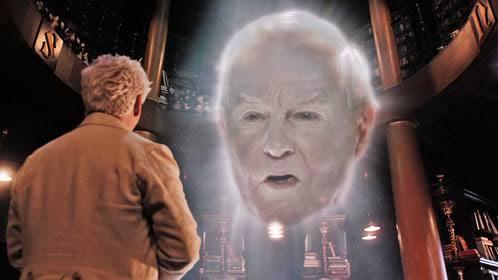
HIS RELATIONSHIP WITH CROWLEY AND ZIRA:
So, from all this information, I would like to point out that Metatron not only used to be human and knows the "true path of purification," but he is also in charge of caring the tree of knowledge.
You know, that tree?

Aziraphale and Crowley represent the two things that oppose his very existence: an angel that is becoming more and more human with each passing day and the Serpent of Temptation that keeps doubting and questioning the edges and the difference between good and evil.
These two not only were they not punished, but together they are two extremely powerful entities, perhaps as powerful as he is.
They are a threat… but only together.
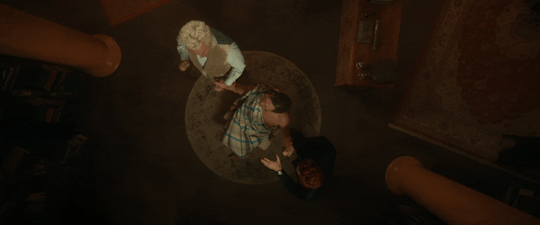
Metatron can see in Aziraphale the very opposite of what he represents, someone who needs to return to the path of divinity:
Aziraphale, the supposed guardian of Eden, who started out as an angel, who gradually transformed into someone with more and more human habits, falling into almost all the deadly sins, in love with the Serpent who tempted humans to eat from the forbidden fruit of the tree of knowledge. Someone who loves forbidden books and bibles, with a hedonistic and condescending personality who managed to deceive his brother angels for millennia to protect humanity and his earthly life***.

It would also explain his disdain towards Crowley, why he looked at him with that face: Metatron is the protector of the tree that Crowley managed to corrupt.

To all this we can add that Metatron/Enoch renounced his humanity to become something superior, while Crowley and Aziraphale consider humanity to be something superior worth defending and loving. They see in humans what Enoch could not see behind his judgment of false celestial purity. They are two supernatural entities who managed to love humanity more than he, a human, ever could.
These parallels are not only born out of my obsession, no. The fact that Metatron has separated them has a much more possible and deep significance.
Narratively, this can only mean one thing: Metatron is the villain, the perfect antagonist to Aziracrow.

CLARIFICATIONS
*Genesis is where the Adam and Eve story is found, the Garden of Eden, the moment that changes Zira and Crowley forever….
**That "book that contained the secrets of wisdom"… is it the book of life? Is Metatron the only one who has access to it?
***I would like to clarify, that for me the real main character of Good Omens is Aziraphale, that's why I find more comparisons with him, followed by Crowley as co-protagonist, but I will continue this theory another day.
#good omens#ineffable husbands#aziracrow#did i just also make a whole bible analysis? Look what you made me do gaiman#can this be tagged as a bible study?#bible study#every time i see a catholic metatron figure i want to throw up#neil gaiman#terry pratchett#good omen season 2#good omens theory#good omens metatron#go2#aziraphale#crowley#good omen 2 spoilers
154 notes
·
View notes
Text
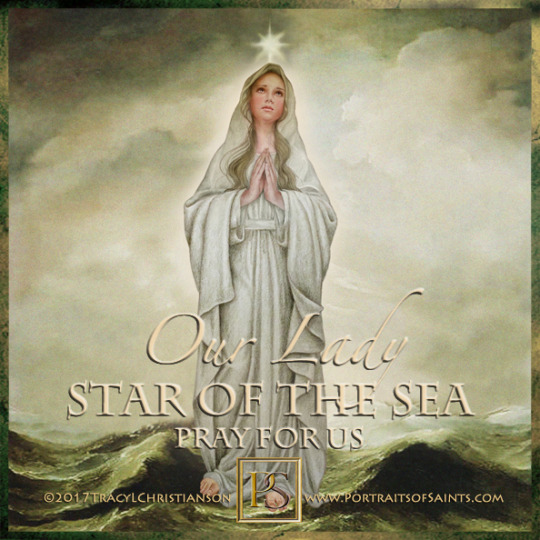
Our Lady, Star of the Sea (Stella Maris)
Feast day: September 27
Patroness of the Catholic missions to seafarers
Our Lady, Star of the Sea is an ancient title for the Virgin Mary. The words Star of the Sea are a translation of the Latin title Stella Maris. The title was used to emphasize Mary's role as a sign of hope and as a guiding star for Christians, especially gentiles, whom the Old Testament Israelites metaphorically referred to as the sea, meaning anyone beyond the "coasts", or, that is to say, sociopolitical, and religious (Mosaic law), borders of Israelite territory. Under this title, the Virgin Mary is believed to intercede as a guide and protector of those who travel or seek their livelihoods on the sea.
Prints, plaques & holy cards available for purchase here: (website)
123 notes
·
View notes
Text
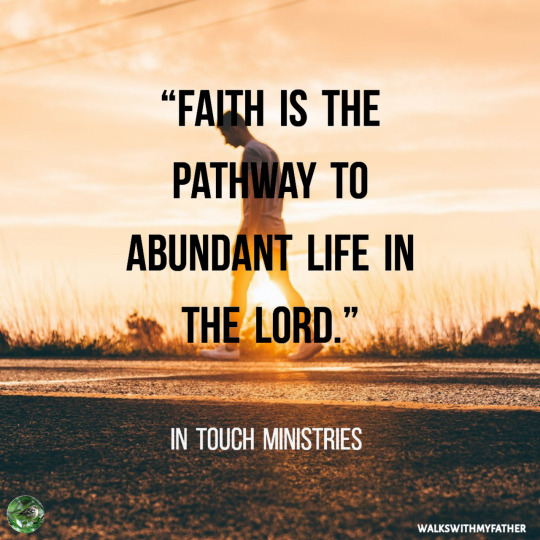
Romans 10:14-17 (NIV). “How, then, can they call on the one they have not believed in? And how can they believe in the one of whom they have not heard? And how can they hear without someone preaching to them? And how can anyone preach unless they are sent? As it is written: “How beautiful are the feet of those who bring good news!” But not all the Israelites accepted the good news. For Isaiah says, “Lord, who has believed our message?” Consequently, faith comes from hearing the message, and the message is heard through the word about Christ.”
“Bridge to God’s Promises” by In Touch Ministries:
“Faith is the pathway to abundant life in the Lord.”
Northern California is home to the Golden Gate Bridge, a famous landmark and marvel of human engineering. Stretching across the strait between San Francisco Bay and the Pacific Ocean, it connects two shores that were once separated and provides safe passage across the expanse.
In our spiritual life, faith can also be seen as a type of bridge—one that links us, who were once far from God, to His promises (Isaiah 59:2). This span is foundational to our relationship with the Lord, offering hope on our journey. And the more we immerse ourselves in God’s Word and absorb His principles, the stronger this bridge of faith becomes. We can depend on it to provide safety as we navigate life’s trials.
As believers, we can find comfort knowing we’re connected to God’s love, grace, and redemption. Through faith, we can walk boldly on the path Jesus has laid out for us, safely traversing chasms of danger and doubt.
Whenever you see a bridge, let it serve as a symbol of how faith unites us with the living God and guides us to abundant life in Him. And keep in mind that a regular intake of Scripture reinforces our “bridge,” adding to its strength and stability.”
(Photo by Farid Askerov at Unsplash)
#romans 10:14-17#god loves you#bible verses#bible truths#bible scriptures#bible quotes#bible study#studying the bible#the word of god#christian devotionals#daily devotions#bible#christian blog#god#belief in god#faith in god#jesus#belief in jesus#faith in jesus#christian prayer#christian life#christian living#christian faith#christian inspiration#christian encouragement#christian motivation#christianity#christian quotes#in touch ministries#keep the faith
14 notes
·
View notes
Text
Understanding Passover and Other Jewish Holidays: An Easy Guide
Passover, also known as Pesach, is one of the most significant holidays in the Jewish calendar, celebrated with rituals that have deep historical and spiritual significance. Alongside Passover, there are other important Jewish holidays like Purim, each with its unique traditions and meanings. In this article, we'll explore what Passover is, its importance, and touch on other Jewish holidays, infusing a bit of Jewish humor to lighten our exploration.
What is Passover?
Passover is a Jewish festival that commemorates the Israelites' exodus from Egypt, which is detailed in the Hebrew Bible in the Book of Exodus. The holiday lasts for eight days in most Jewish communities (seven in Israel and among some liberal Diaspora communities), and it involves a number of rituals and customs designed to remember the hardships of slavery and the joy of liberation.
The central ritual of Passover is the Seder, a festive meal where the story of the exodus is retold using a text called the Haggadah. During the Seder, families and friends gather to read the Haggadah, eat symbolic foods placed on the Passover Seder plate, and discuss the themes of freedom and slavery. Key elements of the Seder include eating matzah (unleavened bread), maror (bitter herbs), and other foods that symbolize various aspects of the exodus story.
The Significance of Pesach
Pesach is another term for Passover, and it highlights the holiday's emphasis on passing over the houses of the Israelites during the tenth plague – the slaying of the firstborn Egyptians. This event led to Pharaoh releasing the Israelites from bondage, marking the beginning of their journey to freedom. Pesach is a time for reflection on the struggle for liberation and the value of freedom, themes that resonate in many cultural and historical contexts.
Other Jewish Holidays: Purim
Purim is another joyful Jewish holiday that usually occurs a month before Passover. It commemorates the events recounted in the Book of Esther, where Queen Esther helps save the Jews from extermination in ancient Persia. Purim is marked by public readings of the Book of Esther, giving charity to the needy, exchanging gifts of food, and enjoying a festive meal. One of the more fun aspects of Purim is the tradition of dressing in costumes, which adds a playful element to the holiday.
Jewish Humor
Jewish humor, known for its wit and often self-deprecating nature, plays a significant role in how these holidays are celebrated and perceived among Jewish communities and beyond. Humor can be found in the playful customs of Purim, the creative parodies during Passover, and even in everyday life. It's an integral part of Jewish culture, offering a unique way to cope with past adversities and current challenges while celebrating joyous occasions.
Closing Thoughts
Understanding Passover and other Jewish holidays offers insight into the rich tapestry of Jewish tradition and culture. These holidays not only commemorate historical events but also offer time to reflect on broader themes of freedom, bravery, and joy. Whether you're Jewish or just interested in learning about different cultures, the stories and traditions of Jewish holidays provide valuable lessons and an opportunity for universal reflection on the human spirit's resilience.
In exploring these holidays and the humor interwoven with these traditions, we get a glimpse into the heart of Jewish cultural identity—marked by endurance, faith, and an unending zest for life. So next time you hear about Passover, Pesach, or Purim, you'll appreciate the depth and vibrancy these celebrations bring to the Jewish community and the broader world.
#passover#brooklyn#jewish holidays#pesach#purim#jewish humor#jewish#jew#jewish joy#jewish culture#jewish food#jewish positivity#jewish tumblr#jumblr
12 notes
·
View notes
Text
THE ELECT HEBREW ISRAELITE MEN ARE THE REAL SUPERHEROES






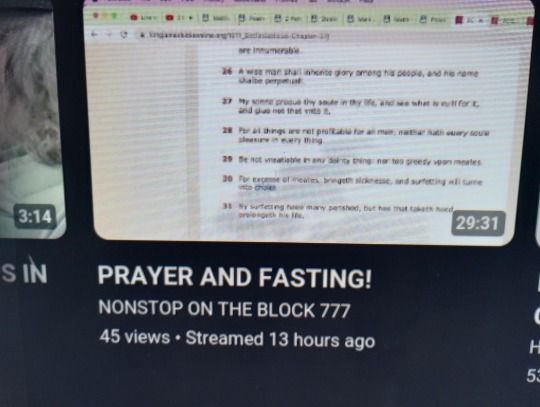
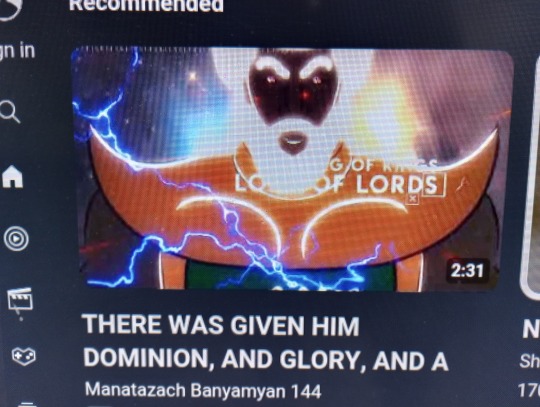










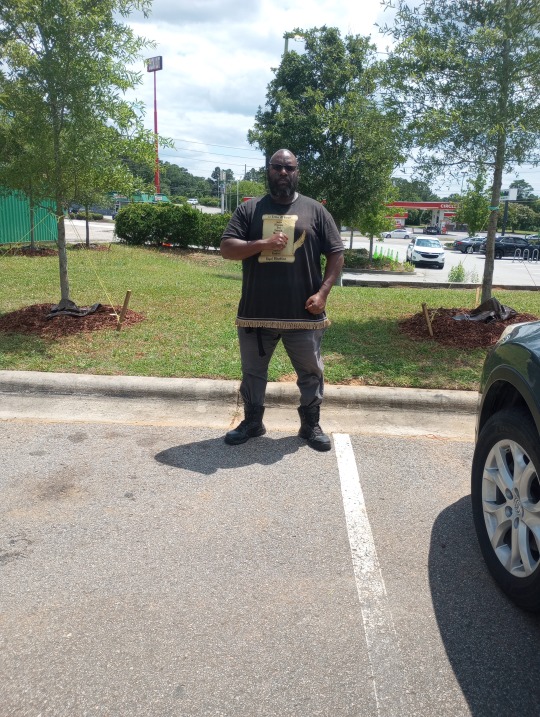
49 notes
·
View notes
Text
Be still and trust God
"For thus says the Lord God, the Holy One of Israel: “In returning and rest you shall be saved; In quietness and confidence shall be your strength.” But you would not," Isa 30:15 SUV
In this world, which is characterized by chaos, conflict, and uncertainty, the concept of strength is often associated with power, might, and military prowess. However, the scriptures offer a different perspective on where true strength is found. It is not in human strategies or military power but rather in quietness and trust in God.
The word of God today delivers a powerful message emphasizing that our salvation and strength lie not in our own abilities or alliances but in quietness and trust in our God. This verse encapsulates a profound truth that resonates throughout the Bible: God's strength is made perfect in our weakness, and true power is found in surrendering to His will.
Quietness, as described in this verse, goes beyond mere silence. It suggests a state of inner peace, calmness, and tranquility—a heart undisturbed by the storms of life. It is a posture of surrender, where one relinquishes control and allows God to take the reins. In Psalm 46:10, the Bible says, "Be still, and know that I am God." This stillness is not passive but an active choice to trust in God's sovereignty despite the circumstances.
Furthermore, quietness is closely intertwined with trust. Trust involves a deep reliance on God's faithfulness and promises. It requires us to let go of our fears, worries, and anxieties and place our confidence entirely in Him. The word of God in Proverbs 3:5-6 says "Trust in the Lord with all your heart and lean not on your own understanding; in all your ways submit to him, and he will make your paths straight." Trusting in God acknowledges His wisdom and goodness, even when we cannot see the way ahead.
The Bible is replete with examples of individuals who found strength in quietness and trust. David, facing the giant Goliath, declared, "The Lord is my rock, my fortress, and my deliverer" (Psalm 18:2). His confidence was not in his own strength but in God's power to deliver him. Also, when the Israelites stood at the edge of the Red Sea with Pharaoh's army closing in, Moses told them, "The Lord will fight for you; you need only to be still" (Exodus 14:14).
Even in the New Testament, Jesus exemplified quietness and trust in the midst of adversity. In the Garden of Gethsemane, facing the agony of the cross, He prayed, "Father, if you are willing, take this cup from me; yet not my will, but yours be done" (Luke 22:42). Jesus' surrender to the Father's will demonstrated the ultimate act of trust and paved the way for our salvation.
Your true strength is not found in your strategies but in quietness and in trusting God. As you navigate through the challenges of life, may God help you to follow the example of those who have gone before us, finding your strength in surrendering to His will and trusting in His unfailing love.
Prayer: Father, you know my heart, I pray to you, help me to rely on you and to trust you always. I surrender to your Holy Spirit, so He May Guide me in Life. Through all life’s challenges and troubles, I keep my trust in you. I know you are with me to lead me in the way I should go, and you are fighting my battles. Amen
#devotional#spirituality#christian faith#biblequotes#bible reflection#christian inspiration#bibleverse#god#believe#christian tumblr
7 notes
·
View notes
Note
Holy cow, the mainstream Mormon church is just as wild as the polygamist sects when you dive deep enough. NewNameNoah on YouTube has hidden camera videos of EVERY ritual (there’s also a transcription floating around somewhere to help you understand when it gets fuzzy). Jordan and McKay (ex-Mormon couple) have reaction videos where they watch the temple videos and provide additional commentary.
There are very active debates about where the events of the BoM took place, because supposedly ancient Israelites sailed to America and became the Native Americans after many generations. Some “scholars” believe the Mayan pyramids are proof the BoM is true because they’re “clearly” Nephite temples. The three pyramids is Teotihuacan supposedly represent the three kingdoms of heaven. There are a disturbing number of tour companies in Mexico that cater to Mormons, providing guided tours of “The Holy Lands” (Chichen Itza and Tulum in Mexico, Lake Atitlan in Guatemala).
Yesterday I was listening to some historian’s presentation on YouTube. He claims the BoM was set in the Midwest, and some of his “proof” (because clearly genetics and the archaeological record ain’t backing him up) is that the names in the BoM end in “-ah” like a lot of Native American words. One of those words he cited? Scotia. Like…my dude. Do you really think Nova Scotia is what the Mi’kmaq called their land? And not Latin for “New Scotland”? Because a cursory google search will corroborate…it’s the latter.
Also, check out Murder Among the Mormons on Netflix if you haven’t already. It’s a wild ride—enjoy!
Murder Among the Mormons is a wild ride lol highly recommend four anyone that likes religious true crime docs.
It is so fascinating to me how mormonism has created such a solid foundation of belief in its relatively short lifetime. it's not the only religion that makes wild claims about its history obviously but I always felt like the major world religions got a lot of their legitimacy just from being so old ya know...... hearing a story from 5k years ago about Jesus doing something magical is like, sounds fake but who knows what was going on back then, the continents were closer the oceans were colder, maybe magic was a thing. But all of Mormonism lore is less than 200 yrs old, maybe 7 or 8 generations ago....... it's like why did God wait so long to reveal all this information lol and why do basically everyone else's stories not line up with yours at all??
But like you mentioned, it's got its claws so deep in the believers they have deep theological discussions about where biblical things happened in North America, something that seems so ridiculously easy to disprove bc we have soooooo much evidence to the contrary (including the actual Christian Bible). It feels like the early isolation of mormons in Utah just really sped up a lot of things that took other religions hundreds of years to achieve, idk it's so interesting.
9 notes
·
View notes
Photo
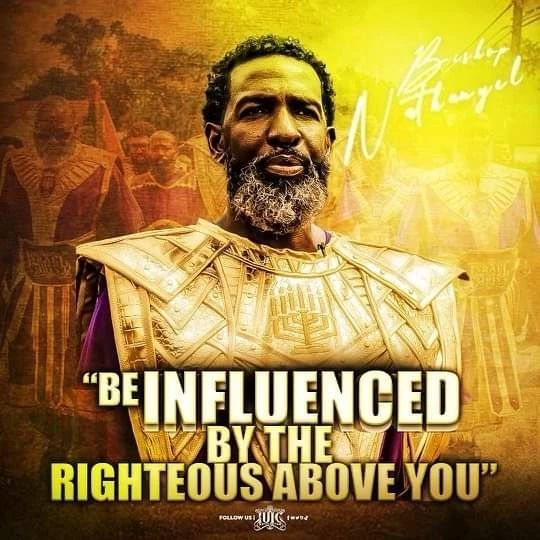
“Be influenced by the righteous above you.” #Influence #PeerPressure #Friends #Companion #Guide #IUiC #Israelites #Nathanyel7 https://www.instagram.com/p/CnDkAY5OUbA/?igshid=NGJjMDIxMWI=
0 notes
Text
when God calls us to lead...
Lately I’ve been thinking a lot about leadership. I’ve been leading the children’s ministry at an international church in Kyoto for about seven months now, and although I am grateful to have been entrusted with this role, I’ve struggled to do this job with confidence and joy. The main reason I’ve yet to feel that I can thrive in it is because I hate being a leader. I’ve never considered myself a ‘leader’, nor have I ever thought I could be a good one. There’s a lot associated with what it means to be a leader, but one of the things I really shudder at is being the main representative for something (especially something that I think is really important). Suddenly, people are looking to me as the one responsible for overseeing the sustenance and growth of the ministry. There is a fantastic group of volunteers who play an important role in keeping the ministry going, but they are looking to me for direction as well. I feel wholly unqualified and under-equipped to make decisions that impact people; such a responsibility feels much too heavy for me.
Although I have never considered myself a leader, the truth is that the majority of us have led and do lead in some capacity. Parents lead their children. Teachers lead their students. And as Christians, the Lord has called us to lead other people to him—to lead others to know the great love God has for them. While there are Christians who do take on larger leadership roles in ministry, people see all of us who profess belief in Jesus as representatives of him and the faith. But the thing is that God doesn’t expect us to do it perfectly. Sometimes I’ll look to Jesus as a model for how I should be serving and become discouraged when I fail to serve as humbly, kindly, wisely, etc. as Jesus. Yes, we should be looking to Jesus, and the Bible says that God is conforming those who love him to the image of his Son (Romans 8:29). However, we can also look to Scripture to see examples of people who believed in God and wanted to serve him but—when asked by God to serve in an unexpected way—failed to do so in full confidence and faith and/or did not go about it perfectly.
I’m currently reading Exodus in the Bible and have been struck this time around by how reluctant Moses was at first to take on the responsibility of leading the Israelites out of Egypt. The Lord said in Exodus 3: “I am sending you to Pharaoh so that you may lead my people, the Israelites, out of Egypt.” But Moses asked God, “Who am I that I should go to Pharaoh and that I should bring the Israelites out of Egypt?” He answered, “I will certainly be with you…” (Continuing in chapter 4) But Moses replied to the Lord, “Please, Lord, I have never been eloquent—either in the past or recently or since you have been speaking to your servant—because my mouth and my tongue are sluggish.” The Lord said to him, “Who placed a mouth on humans? Who makes a person mute or deaf, seeing or blind? Is it not I, the Lord? 12 Now go! I will help you speak and I will teach you what to say.” Moses said, “Please, Lord, send someone else.”...
I’m not doing something nearly as frightening and life-threatening as what God asked Moses to do, but I still saw a little bit of myself in Moses’ lack of faith in his own abilities and ultimately in the Lord, who assured Moses he would 1. be with Moses and 2. be the one who'd actually do the work that brings about change. Ultimately, the Lord is the one in control of all things. And he is a good, perfectly loving God, who is constantly at work in the world. He has guided me to this specific role, and although it is not the role I envisioned for myself, I will do what I can, without expecting to do it perfectly, and trust that the Lord is working behind the scenes to accomplish his purposes for his glory.
#God#Christianity#christian#faith#Jesus#work#leadership#leader#spiritual leadership#Bible#reflection#work and faith
8 notes
·
View notes
Text
Devotional Hours Within the Bible

by James Russell Miller
Saul Rejected as King (1 Samuel 15)
Saul began his reign with enthusiasm. He had a splendid coadjutor in his son Jonathan. Jonathan was brave and popular with the people. The Philistines made an effort to crush the Israelites. They gathered in vast numbers against them. The men of Israel were afraid, and followed Saul tremblingly. Samuel had appointed a time to come to Saul at Gilgal to offer sacrifices before the battle should begin. But Saul became impatient of Samuel’s delay and offered the sacrifices himself. Just as he had ended his offering Samuel came. Saul went out to greet him but Samuel said to him: “What have you done?” Saul explained his action but Samuel said: “You have done foolishly; you have not kept the commandment of the Lord your God.” He said further to him that if he had obeyed his kingdom would have been established forever. “But now your kingdom shall not continue: the Lord has sought a man after his own heart, and the Lord has appointed him to be prince over his people, because you have not kept that which the Lord commanded you.”
Samuel continued to be prophet and guide to Saul, and brought him a Divine message, commanding him to smite the Amalekites. Very definite instructions were given to the king: “Now go, attack the Amalekites and totally destroy everything that belongs to them. Do not spare them; put to death men and women, children and infants, cattle and sheep, camels and donkeys.” The battle was fought, and Saul’s victory was complete. But Agag, the king, was spared, also the best of the sheep and oxen, and all that was good. What was vile and worthless, was utterly destroyed but what was choice and valuable, was spared.
After the battle was over came Samuel with sharp reproof. Saul met the old man graciously. He was greatly pleased with himself and with what he had done. He regarded his victory over the Amalekites as a splendid achievement. He had already set up a monument to himself, perhaps a stone, to commemorate his victory. He heard that Samuel was coming to see him, and went to meet him with patronizing words and manner: “The LORD bless you! I have carried out the LORD’s instructions.”
He had indeed performed the Lord’s bidding in a way, in his own partial and imperfect way, doing just as much of what God commanded, as he had felt inclined to do, then leaving out such parts of the commandment as he felt disinclined to perform.
There are a good many people in every age who obey God in the same way. They render a general obedience but pay no heed to the exact requirements of the Divine law. They tell the truth as a whole but are not concerned about slight deviations from it. They are honest in a large, general way but do not think that their little dishonesties count against them. Saul thought he had come near enough to what God had told him to claim to have been obedient and to merit strong commendation for his fidelity. What God thought, however, of Saul’s way of obeying we learn a little farther on.
Just as Saul was telling Samuel how well he had done his errand for God, there came ominous sounds from some place near-by, and Samuel said: “What then is this bleating of sheep in my ears? What is this lowing of cattle that I hear?” According to the command, all the sheep and oxen of the Amalekites were to be killed. What then were these noises of sheep and cattle? We cannot hide our sins. We may think we have covered up our disobediences so deftly, that detection will be impossible. Suddenly something tears away the veil and they are exposed to the gaze of the world.
A man carries on a series of dishonesties and conceals them by expert bookkeeping, thinking he is safe from detection. But some morning he is startled to find that the stolen sheep have been bleating, and all the world knows of his thefts and embezzlements. It is the nature of sheep to bleat and of oxen to low, and they have not sense enough to keep quiet when they are wanted to. Indeed, they are almost sure to make a noise just when they are expected to keep perfectly still. It is the same with sin. It is a poor friend. It professes well when it offers its solicitations but when it has been committed, it is a most unsafe confidant. It cannot keep a secret. It is sure to betray the man, who depends upon it for discreet silence. In many people’s lives there are some bleating sheep and some lowing oxen, which tell the story of the imperfectness of our obedience.
It is a good rule, when something goes wrong, in matters in which we are interested, to take the blame upon ourselves. That is the manly way, at least. But that is not the common way it was not Saul’s way. Saul said: “The soldiers brought them from the Amalekites; they spared the best of the sheep and cattle to sacrifice to the LORD your God.” Saul could not deny the disobedience now, with the evidence sounding in the prophet’s ears but he threw the blame on the people .” They spared the best of the sheep and cattle,” he said. The king thus showed a spirit of baseness and cowardice and lack of fine manliness.
Would the people have brought them if he, the king, had forbidden it? Had he not at least connived at their disobedience by his silence? A command had been given to him, and he was the responsible leader. Nothing is more contemptible than the attempt to throw the blame of our sins and mistakes on other people. Yet few things are more frequently done” Adam set the example at the beginning, and many of Adam’s children follow him! The true, manly way is to take the blame of our own sins. In God’s sight and that is the way always to look at our acts everyone must bear his own burden of sin. If we have done wrong let us be frank enough to confess it.
Saul went still farther and sought or invented a religious reason for what the people had done. “The people spared the best of the sheep and cattle to sacrifice to the LORD your God.” We do not know certainly whether this was a true statement of fact or not, or whether the reason given for the disobedience was only an invention of the king’s to excuse himself. If the people had really planned the matter, they probably thought that if they used the spoil, although disobediently spared, to make a great triumphal offering to the Lord, He would overlook the disobedience. That is, they would propitiate the Lord after they had broken His command, by a generous sacrifice and by effusive devotion. What pitiful mockery!
Let us be careful that we never repeat the mockery. We never can satisfy God for one failure in duty by extraordinary zeal in some other direction. We cannot appease Him when we have sinned by bringing to His altar the fruits of our sin. For example, God will not overlook a man’s dishonesty if the man lays part of what he has made by the dishonesty in the collection plate or gives it to some holy cause. Men can play all manner of tricks with their own consciences but not with God.
“Now go, attack the Amalekites and totally destroy everything that belongs to them. Do not spare them; put to death men and women, children and infants, cattle and sheep, camels and donkeys!” 1 Samuel 15:3
“Saul and the troops spared Agag, and the best of the sheep, cattle, and fatlings, as well as the young rams and the best of everything else. But they did destroy all the worthless and unwanted things.” 1 Samuel 15:9. They utterly destroyed all the common spoil but spared whatever was especially good. They kept all the fat, plump sheep and oxen and destroyed the poor, lean and worthless ones. That is the way with a good many people. They are quite ready to devote to God the things they do not care much for but the things that are desirable for their own use, they keep.
This spirit is shown in the way many give to the Lord’s service. The gold and silver and the banknotes they keep for themselves, while they put the nickels and the pennies in the collection plate. It is shown, too, in the way they treat their own vices and lusts. Those that they do not particularly love they crush out with amazing zeal. But their favorite vices and fat, rich sins they spare for their own indulgence!
Men may go on and do as they will but that is not the end of the matter; the Lord has something to say about their acts. If they could leave Him out of their life altogether and get clear of meeting Him, if there were no final and eternal judgment, disobedience would not be such serious business. But they cannot eliminate God. He stands in their paths as they return from their sins and utters His Word and tells them what He thinks about them. We never can avoid meeting God after our sinful acts. We cannot go through life by any path so as to miss His final judgment. Indeed, the voice of conscience tells us at once, as God’s prophet here told Saul, just what God has to say. If we are wise we will ask beforehand what God will have to say and will then shape all our acts so as to have His approval on whatever we do .
Samuel was growing old, and he was a gentle, kindly man but he never grew lenient towards men’s sins. As he listened to the king’s excuses for disobedience, instead of frank and honest confession, Samuel’s indignation grew hot, and he spoke to him with sternness: “Stop! Let me tell you what the LORD said to me last night!” He compels Saul to stop and listen to the rehearsal of the story of his sin. “The Lord sent you on a mission and said: Go and completely destroy the sinful Amalekites. Fight against them until you have annihilated them!” 1 Samuel 15:18
The evil things in us are our Amalekites, and we are to destroy them! Yet how many of us, like Saul, cut away at the little Amalekites and spare the big Agags ? Do not some of us also see the story of our own disobediences and failures in the way Saul treated God and His commandments?
He owed everything to God. He had been taken from a lowly place and exalted to high honor. He ought to have shown his gratitude in unwavering obedience. But his promotion, instead of making him humble, had turned his head. When Samuel asked him why he had not obeyed the Lord, but had seized the spoil that God had devoted to destruction, Saul still insisted that he had obeyed, repeating the assertion that the people had spared part of the spoil to sacrifice unto the Lord. The king showed anything but a submissive and docile spirit. He was willful, impenitent, haughty and insolent.
To Saul’s words Samuel replied: “Behold, to obey is better than sacrifice .” In its reference to Saul’s act the meaning of his words is plain. The king had not propitiated God, in proposing to offer the fruits of his disobedience in sacrifice. Nothing would satisfy God, but obedience.
But there are other applications less obvious.
Many people set a great deal more importance upon religious ceremonials than upon practical obedience. They will be very faithful in attendance upon all church services and very devout and reverent in worship and yet in their daily life they will disregard the plain commandments of God! They fill the week with selfishness, with pride, with bitterness, with evil speaking and all manner of little deceptions and falsehoods and then come on Sunday, with great show of devotion, to engage in the worship of God!
When God tells a mother to care for her child, He is not satisfied if she neglects that duty in order to write a book or to look after a sick woman, or to go out to a religious meeting. When God wants a man to help a poor family in some obscure street; He is not satisfied if instead of that lowly service the man does some excellent thing which seems to bring ten times as much honor to the Lord. The supreme thing in Christian life is to obey God, and without obedience nothing else counts at all.
There is a story of a father and his child which illustrates Samuel’s words, “To obey is better than sacrifice.” They were living a little distance from a lake whose shores were lined with beautiful and brilliant shells. The father was absent the greater part of the day, and had bidden the child never to go near the water while he was away, fearing that some harm might come to her. One day the little girl broke her father’s commandment and wandered to the lake shore. She dreaded to meet her father in the evening, knowing that he would be very much grieved to learn of her disobedience. She thought, however, that she might appease him and make him feel less angry if she would show him some special kindness. So she gathered a basketful of the loveliest shells she could find, and took them to give as a present to her father. When he came home she told him what she had done, and then producing the shells, she gave them to him as a present, asking him if they were not very beautiful. With great sadness on his face he flung the shells away, saying: “My child, to obey is better than sacrifice!” No gifts, however lovely, could please the father, since his child had disobeyed his command.
Saul understood now, that his sin was a most grave and serious matter, and he made confession. “I have sinned!” The same words have been spoken in such a way as to bring instant pardon. When David said to Nathan, “I have sinned!” he heard the answer at once: “The Lord has taken away your sin.” But in Saul’s case there was no real confession in the words, no deep sense of sin. Saul was not sorry he had done wrong but was sorry only for the consequences, the punishment which had been declared.
God is merciful and gracious but Saul’s sin could not be forgiven. A second time he had disobeyed the Lord when he was sent with specific directions on a definite duty. The doom was final and irrevocable. “You have rejected the Word of the Lord, and the Lord has rejected you from being king!”
No one is fit for God’s service who will not obey God’s commands. If we would be employed as His servants, to work for Him we must do what He bids us to do. Saul was thrust from the throne of Israel, because he persisted in taking his own way instead of God’s. May this not be a reason in many cases why men with great abilities do not rise to high spiritual influence and power? God will entrust His servants with responsibility, only so far as they prove worthy to be trusted. When one fails in smaller trusts, the larger will not be given to him; and the smaller, too, will be taken away. If we want to be used in the work of the Lord we must learn to obey implicitly and unquestioningly. No other kind of servant can stay in the Lord’s service!
8 notes
·
View notes
Text
[The Book of Wisdom] praises Wisdom as a savior goddess, as the rescuer of Adam, Noah, Abraham, Lot, Jacob, Joseph, and the Israelites from Egypt. The myth of Sophia is reiterated in clear terms. Here is how she accompanied Adam into captivity: "She descended into the dungeon with him, and when he was in chains she did not leave him."
Sophia comprehends the last atom of matter and accompanies it as surely as she becomes the guide of the lsraelites-the pillar of cloud by day and pillar of fire by night. "You provided your people with a blazing pillar as a guide for their uncharted journey, a benign sun to accompany them on their glorious pilgrimage."
Sophia: Goddess of Wisdom, Bride of God by Caitlin Matthews
12 notes
·
View notes